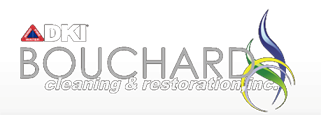Duct Cleaning
Benefits of Air Duct Cleaning
Dirty air ducts will affect the quality of the air inside your home or office building. The performance of your heating and air conditioning units is affected when a system is dirty. A lack of duct cleaning can lead to higher maintenance costs.
Air ducts are a leading cause of indoor pollutants such as mold, mildew, bacteria, viruses, and allergens. These pollutants affect the health of indoor environments. The National Air Duct Cleaners Association recommends that air ducts be cleaned every 3-5 years.
Air Duct Cleaning Improves Indoor Air Quality
Contaminants, pollutants, allergens, and mold tend to settle along air vents and ductwork. Ductwork systems have air filters, but these filters may contain not all contaminants. Regular cleaning of air ducts improves indoor quality as it improves airflow and reduces the amount of debris that could be transported into indoor environments.
Air Duct Cleaning Reduces Air Pollution Hazards & Promote Indoor Health
Kitchen fumes, tobacco smoke, and mold are some of the most common indoor pollutants. Cleaning your home’s air ducts reduces the chances of indoor pollution by a great degree and promotes health,
Increases Indoor Comfort
Clogged or dirty air ducts can affect your HVAC system’s performance. Air duct cleaning gets rid of clogged debris, improves airflow, and increases the system’s effectiveness. Cleaning enhances the system’s functionality to enhance comfort levels due to proper cooling and heating.
Reduces Air Conditioning & Heating Costs
Ductwork cleaning can boost energy efficiency, improve performance, and reduce air conditioning costs. A clean air handling system is less likely it is to break down. This also means lower HVAC repair costs during its lifetime.
When a heating and cooling system experiences a problem in airflow, it works harder to perform and deliver the preferred temperature. The National Air Duct Cleaners Association recommends that air duct cleaning be done more frequently for people who have pets, smoke indoors, or have a family member with seasonal allergies.










